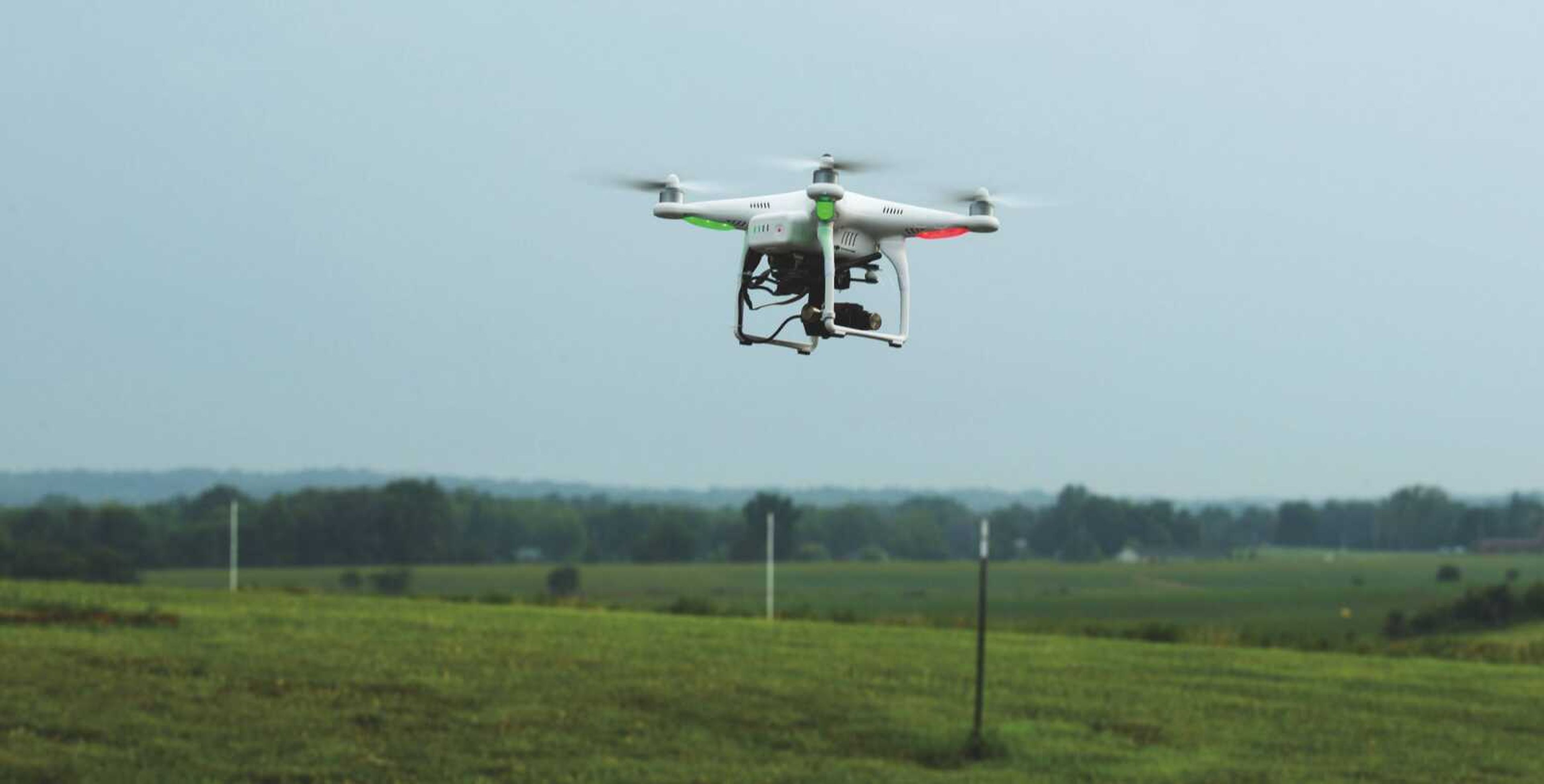Drone program takes shape as it awaits state approval
Southeast Missouri State University is planning to offer a degree in drone technology, starting in fall 2017. The Bachelor of Science in Unmanned Aircraft Systems was one of President Carlos Vargas' first initiatives when he arrived on campus last year...
Southeast Missouri State University is planning to offer a degree in drone technology, starting in fall 2017. The Bachelor of Science in Unmanned Aircraft Systems was one of President Carlos Vargas' first initiatives when he arrived on campus last year.
The program, which will be in the Department of Polytechnic Studies, was approved by the Board of Regents on Feb. 26, but is still awaiting approval from the Missouri Department of Higher Education.
"This is a technical program designed for students to come in and learn about drones, how to use drones and how to do research with drones," Dr. Chris McGowan, dean of the College of Science, Technology and Agriculture, said.
Dr. Bradley Deken, chairman of polytechnic studies, said it wasn't until the last six to seven months that the program bore any resemblance to what it currently is, because there are not many other universities with drone programs Southeast could use as reference.
"We got a pretty good sized group of faculty together that had attachments to drones and that sort of technology, and we started brainstorming what would make sense in our program," Deken said. "We met many times for that and finally narrowed it down to what it became."
Deken said while other universities had singular drone courses in other programs or focused entirely on the engineering and design of drones, Southeast was best fit with a program that focused more on the use of drones after they have been created.
"Our goal is not to reinvent the wheel, so to speak, so we're not trying to create new drones," Deken said. "We're not doing the research and engineering side of that. Instead, what we're doing is trying to use the drone itself as a tool. So if you can get an off-the-shelf drone, what changes can we make to it so that it's useful for specific applications? What dictates how long the flight time is? What can we put on board? What makes more sense to leave off board? How to change the sensors and the systems to make it integrated together and use it for a specific purpose."
Deken said a lot of the curriculum will include existing classes in understanding mechanical and electrical systems. He added that the curriculum also would include six new courses that would deal directly with drones, mission planning, drone ethics and the Federal Aviation Administration's rules and regulations.
"Those are still in development, so we have kind of a skeleton there as to what we're thinking might be there. But, of course, we're also looking for a faculty member to come in on that side of things and really dictate what should be there," Deken said.
Deken said a search for a new faculty member will begin when the program is approved by the state, if not sooner. He added that the new faculty member would have time to develop the courses because they will be upper-level and will not be offered the first year of the program.
Deken said the department hopes to create a minor, as well, for students who might not want to focus solely on drones. He said currently it is a large hurdle for companies to use drones because of the FAA regulations, but that companies have been willing to put the effort in to use this new technology.
"Drones are becoming a part of everyday life now, all of a sudden," McGowan said. "A lot of companies are using them, even Amazon, are talking about delivering packages with them. They certainly have applications in agricultural fields. In fact, there are companies already existing in the bootheel and St. Louis where they are flying over fields."
Deken said students at Southeast already have started using drones for research purposes and that they are amazing tools that only will become easier to use in the future.
"For a long time, computers were just these research tools, and then people made it easy so that anyone could use a computer," Deken said. "I think that's where we are with drones. The controls have gotten so complex internally so that externally, it has gotten a lot simpler for the person behind the wheel. Your phone has more than enough computing capability to go through and control these things. I think we are going to see a similar explosion in the industry as we had with the personal computer. Probably not to the same level, but certainly reminiscent to that."








